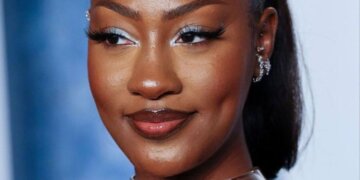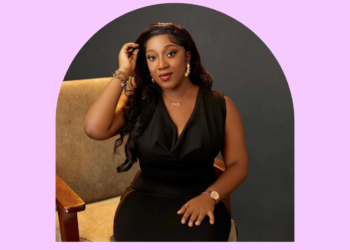No products in the cart.
You Are What You Eat: Essential Food and Vitamins for Women
What we put into our bodies may be just as important as what we put on them, if not more. Wellness starts from the inside out, and food and nutrition are the cornerstones of healthy living. There are foods and vitamins for all sorts of things; for increased energy, stronger teeth and healthier bones, food for better digestion and bowel health, and so on.
For every need our body has, there’s food that can have an impact on that need, even if it doesn’t meet it completely. A holistic approach to caring for our bodies can be by finetuning our needs to meet the food we eat.
We can get the vitamins and nutrients needed to look better, feel better, and get over illnesses faster by eating the right thing and taking in the right nutrients in the right amounts.
What is that “right thing?”
Depending on your needs and goals, here’s a list of things you can eat and supplements you can take for overall wellness.

For Better Gut Health:
They say all hot girls have stomach issues, but that should not be the case. With the right diet, you can kiss many of your stomach problems goodbye. Food that’s high in fibre and rich in probiotics is essential to maintain good digestive, gut and bowel health.
Probiotics are live cultures and yeasts described as gut-friendly bacteria. Yoghurt and Kefir (a yoghurt drink made by fermenting milk which can help to reduce a leaky gut) are rich in probiotics. Fermented food like Miso; a Japanese savoury paste made from fermented soybeans used in the preparation of soups, dips and dressings, German delicacy sauerkraut; made from fermented cabbage, Kimchi; a Korean side dish made of fermented vegetables and Kombucha; a fermented tea, are great for gut health.
Leafy greens like kale or spinach are great sources of fibre as well as nutrients like folate, vitamin C, and vitamin K. Research shows that leafy greens also contain a specific type of sugar that helps fuel the growth of healthy gut bacteria. Almonds, garlic, ginger, whole grains, lean protein, avocado and low-fructose fruit are also great aids for proper digestion and good gut health.
For Healthy Nails:
The state of your nails can be indicative of the overall state of your health. Dry, brittle, and cracked nails can be a sign of a nutrient deficiency, while strong, healthy-looking nails can point to a proper diet and lifestyle.
Vitamin D helps regulate calcium levels, thus helping your nails (and bones) grow strong. Eggs, fatty fish and fish liver oils are excellent sources of Vitamin D. Meat and Fish also contain collagen and protein, which are both crucial to nail health. Vitamin A, healthy fats, leafy greens like spinach and kale, and of course water, are also essential for nail and overall body health.
For Hair Growth and Healthy Hair:
Some of the best foods for hair growth are foods that are high in nutritional value, like eggs, berries, sweet potatoes, leafy greens, avocados, chia seeds, nuts, beans, meat and fatty fish.
The state of our hair— how fast it grows, how healthy it is, whether or not it sheds — is dependent on many factors including age, genetics, medications, overall health, and diet. Deficiencies in nutrients can affect hair health, and while we have no control over factors like age and genetics, what we eat is more in our hands.
Vitamins and minerals from food play an important role in the hair follicle growth cycle and cellular turnover, so having the wrong diet can lead to or further hair loss.
Studies suggest that deficiencies in vitamins B12 and D, biotin, riboflavin, iron, and other nutrients are associated with hair loss. Eating a balanced diet rich in these vitamins and minerals or taking supplementary medicine to provide them may help promote hair growth, especially if poor nutrition is the underlying cause of the hair loss.
For Healthy Skin:
Your skin is the barrier that protects the rest of your body from the outside world, a cocoon for your insides. To keep your skin looking, working, and feeling good, the right balance of nutrients is essential. When you’re well taken care of on the inside, it’ll show on the outside. While your skin protects your body, you need to nourish it accordingly to help it look, feel and perform at its best.
Healthy fats give your skin its “glow”, and if you’re lacking in them, then the skin may look wrinkled, flaky and dry.
Foods like nuts, eggs, extra virgin olive oil, flaxseeds, leafy dark greens, avocados and fish help your skin stay moist, firm, and flexible, and they’re better for your heart than saturated fats. Omega-3 fatty acids especially are a kind of fat that our bodies do not naturally produce but need to build cell walls. They also block a chemical that lets skin cancer grow and spread, and they may lower inflammation.
Foods rich in protein, Vitamin A, Vitamin C, Vitamin E and Zinc can also be instrumental for healthy skin. Vitamin E has antioxidant and anti-inflammatory properties and can absorb the energy from UV light, which damages the skin and leads to wrinkles, sagging, and skin cancer. It also works with vitamin C to strengthen cell walls.
Zinc helps your skin heal after injuries and may also protect the skin from UV damage. It also has antioxidant properties.
Collagen is another great skin, hair and nail care hack. Collagen is a major component of your skin, which helps strengthen skin and increase elasticity and hydration. As we age, our bodies produce less collagen, leading to dry skin and the formation of wrinkles. You may consider eating foods rich in collagen, like berries, sardines, chicken with the skin on, beef bone broth, organ meats like liver, heart, brain and kidneys or taking supplementary collagen in tablet form.
To Reduce Period Symptoms:
Eating certain food on your period like fruit, leafy green vegetables, chicken, fish, dark chocolate, nuts, yoghurt and tofu may help to reduce those annoying cramps. Teas like peppermint and chamomile may also help soothe PMS symptoms. It is also very important to drink lots of water as hydration can help combat those annoying period headaches. Drinking a considerable amount of water can also help prevent fluid retention and bloating.
There are also things we must avoid to reduce bloating, cramps and other period discomforts. Coffee, excess salt or sugar, alcohol, red meat and spicy foods may be your enemy at that time of the month.
You can get all these nutrients and more from eating the appropriate food (some of which are listed above) or by taking supplements rich in these vitamins and minerals as prescribed by a dietician or other appropriate medical personnel. What we eat is a primary determinant of how good we feel and how well our bodies function.

21 MAG does not provide medical advice, diagnosis, or treatment. Any information published on this website or by this brand is not intended as a substitute for medical advice.















